I first helped a fellow passenger overcome their fear of flying in 1970. I was nine months old, dressed to impress in a white romper suit. I gurgled and smiled with all the charm I could muster from London to Innsbruck. My mother recalls fondly: "How can you be frightened when a baby is that chilled?"
Statistically, you're much more likely to die in a road traffic accident than in a plane crash, yet far more of us are scared of flying. Incidents and fatalities are rare, but that doesn't always stop the nerves from building. Here are some of our best tips for overcoming a fear of flying.
Let the Cabin Crew Know You're Nervous
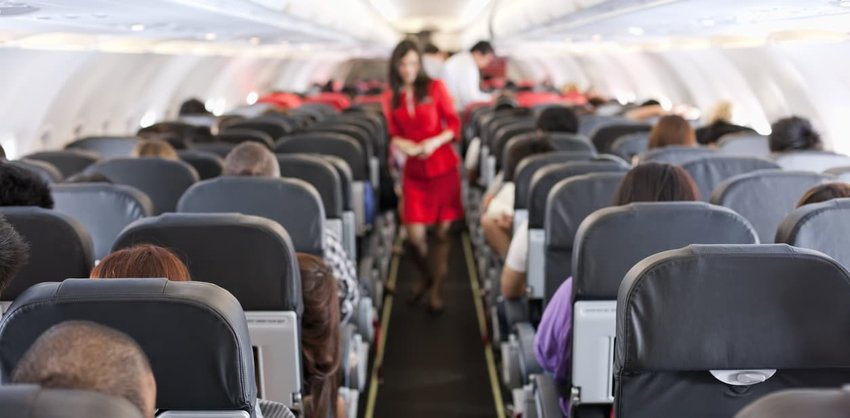
Cabin crew are trained to help passengers in difficulty and by letting them know you're nervous, they'll keep a special eye out. A few soothing words, a glass of water or the distraction of a chat about what their job entails will all help. They're used to dealing with nervous fliers so they know just the right thing to say. Follow their instructions and you'll be fine.
Work Out What Triggers Your Fear
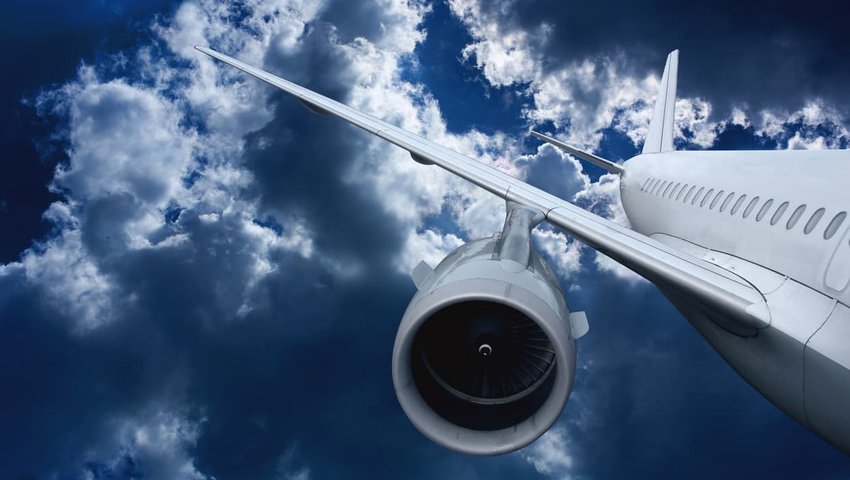
Is it the thought of taking off, noises that go bump in the night or the fear of a crash landing that bothers you the most? Figure out which aspect of flying triggers your fear and you're halfway to beating it. Research - or ask the cabin crew - what's normal. Once you realize that the clonk is just the sound of the landing gear being lowered, your brain will stop stressing that a vital part has just fallen off and you can relax.
Learn How a Plane Works
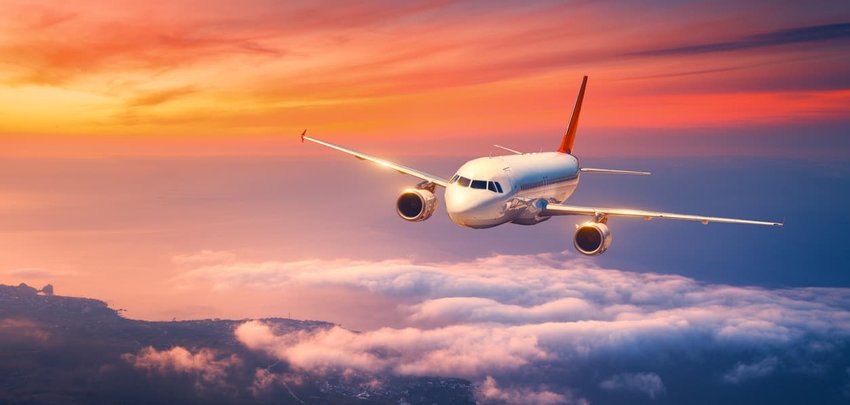
There's comfort in knowledge, and a bit of basic aeronautics can go a long way in calming you down, especially if you're scientifically minded. Turbulence is normal, and aircraft are built to withstand it. The Faraday effect prevents lightning strikes from being a danger. Planes can glide a long way even if all engines fail - like the British Airways plane that once flew over a volcanic ash cloud in Indonesia. It landed safely, and so will you.
Pack a Distraction Kit
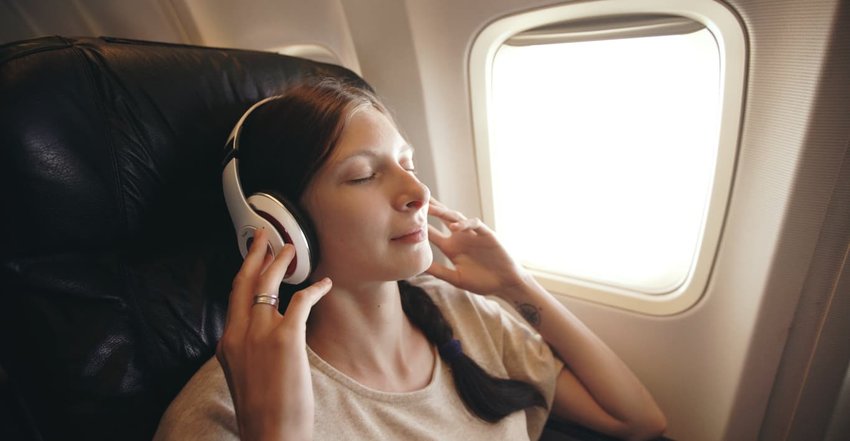
Keeping your mind occupied on something else is a good way of distracting yourself from what's bothering you. Plug in your noise-canceling headphones and listen to your favorite music, watch a movie or engross yourself in a good book - anything to take your mind off your fears. Some people twiddle a bracelet or squeeze a stress ball. Whatever works, pack it in your carry on.
Focus on Your Breathing

Meditation techniques help too. Focus on taking deep breaths and exhale slowly, concentrating on your breathing. Count slowly in your mind to four as you breathe in and out to achieve a steady pace. It's a calming technique and one which should help prevent panic rising.
Build Your Confidence with Short Haul Flights
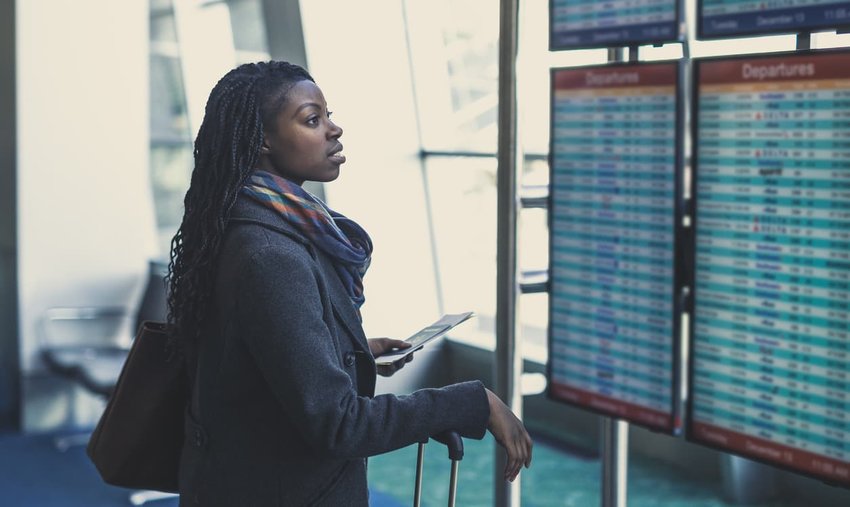
If you're nervous, cut your teeth on a short hop rather than a long haul flight. Confidence comes with familiarity so persevere. Building up a repertoire of safe take offs and landings will help. When you're ready, you can gradually increase the duration of your flight until you're brave enough to circumnavigate the globe.
Take a Course with the Professionals
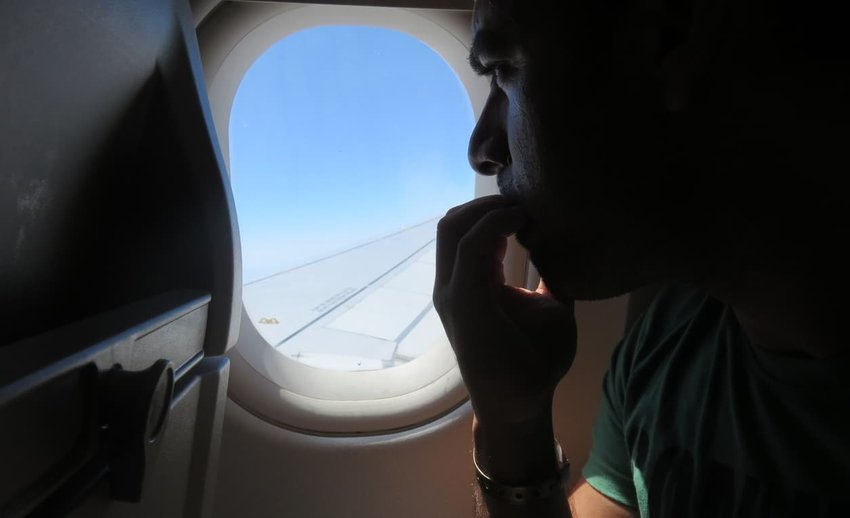
If all else fails, book a fear of flying course. These take place at a number of airports. You'll begin in the classroom where qualified personnel will run you through basic aeronautics and address any concerns and questions you may have. Once the theory part of the course is complete, you'll take a short flight with your fellow alumni to practice what you've learned. These courses have a high success rate so you'll be flying regularly in no time.